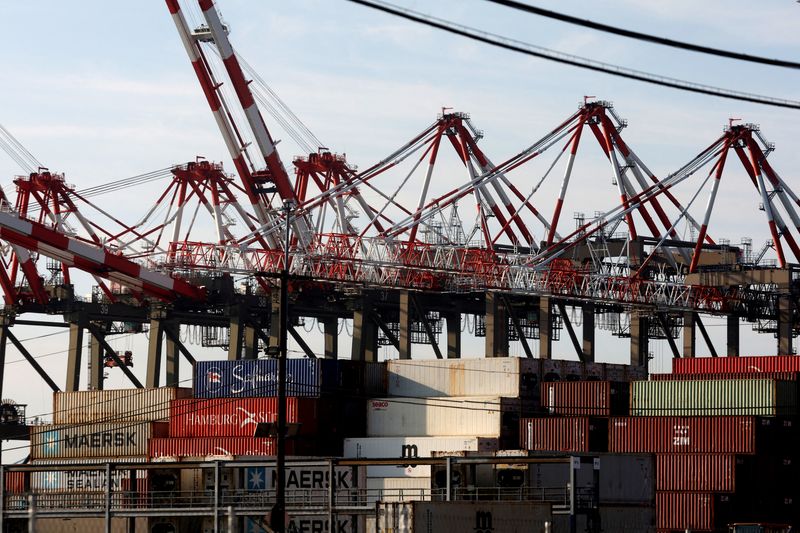By Hari Kishan
BENGALURU (Reuters) - Most major stock markets will fail to even repeat this year's lacklustre performance in 2025 based on the prospect of global trade tensions and a worsening inflation outlook holding back gains, according to a Reuters poll of equity analysts.
U.S. President-elect Donald Trump's plan to impose tariffs on its trade partners sent nearly all major indexes into a tailspin, as his policies were expected to cut global growth as well as prospects for central bank interest rate cuts.
Still, the benchmark U.S. S&P 500 index is up about 4% since the Nov. 5 election, suggesting that, while investors in the world's largest economy are so far fine with Trump's radically different approach to policy, there are risks aplenty for the rest.
The Nov. 15-26 Reuters poll of more than 150 equity strategists covering 15 major stock indexes forecast only three would outperform their current year-to-date performance in 2025.
"There are two risks in particular that investors face as we approach 2025," noted analysts at Goldman Sachs.
"The first is that the recent wave of optimism has front-loaded returns, leaving them vulnerable to a correction. There are still many unknowns around tariff risks, for example, and the impact on global growth and inflation."
While the S&P 500's more than 25% rise this year was the highest among major equity indexes, it was mostly driven by a handful of technology stocks, suggesting there may be limited scope for a repeat performance.
The U.S. benchmark stock index was expected to touch 6,147 by mid-2025 and then end the year at 6,500, gaining 2.7% and about 8.5% respectively from Monday's close.
At a price-to-earnings (P/E) ratio of around 24 against a 10-year average of 18, the S&P 500 is already one of the world's most overvalued indexes.
"We are emerging from a highly unusual period in which one market (the U.S.) and one sector (technology) dominated returns - and within that sector, a handful of exceptional firms drove the large bulk of those returns," noted Justin Thomson, head of international equity at T. Rowe Price.
"This dominance has skewed investor positioning and valuations - many investor portfolios are heavily exposed to U.S. equities while virtually every sector in non‑U.S. equities is currently cheaper than its U.S. equivalent."
Among other developed market indexes, the pan-European STOXX 600 index is expected to rise to 536 points by end-2025, up more than 5% from Monday's close and above a record high of 528.68 touched in September.
European indexes have lagged the U.S. this year, a trend likely to continue into 2025, despite presenting a buying opportunity in terms of relative value, the survey found.
Only France's CAC 40, which is down nearly 4% for the year, was expected to recoup all of those losses and end next year about 9% higher from current levels.
Brazil's BOVESPA and Mexico's IPC indexes, which were forecast to register double-digit gains in 2025, are down roughly 4.0% and 13.0% respectively this year.
Those estimates were collected before U.S. President-elect Donald Trump, who takes office on Jan. 20, said he would impose a 25% tariff on imports from Mexico until it clamped down on drugs and immigrants.
India's richly-valued stocks were predicted to rise 4.7% by mid-2025 and 9.2% by end-2025, a relatively sluggish performance for the country's benchmark BSE Sensex which has shown double-digit gains in seven of the past 10 years, including this year.
Despite the tempered outlook, a rare occurrence in a market where participants are mostly bullish, there was no clear consensus among analysts if a correction - a drop of 10% or more in stock prices - was in the offing in the near-term.

Among 83 equity strategists who answered an additional question, 43 said a correction in their local markets by early next year was likely. The remaining 40 said it was unlikely.
(Other stories from the Reuters Q4 global stock markets poll package)